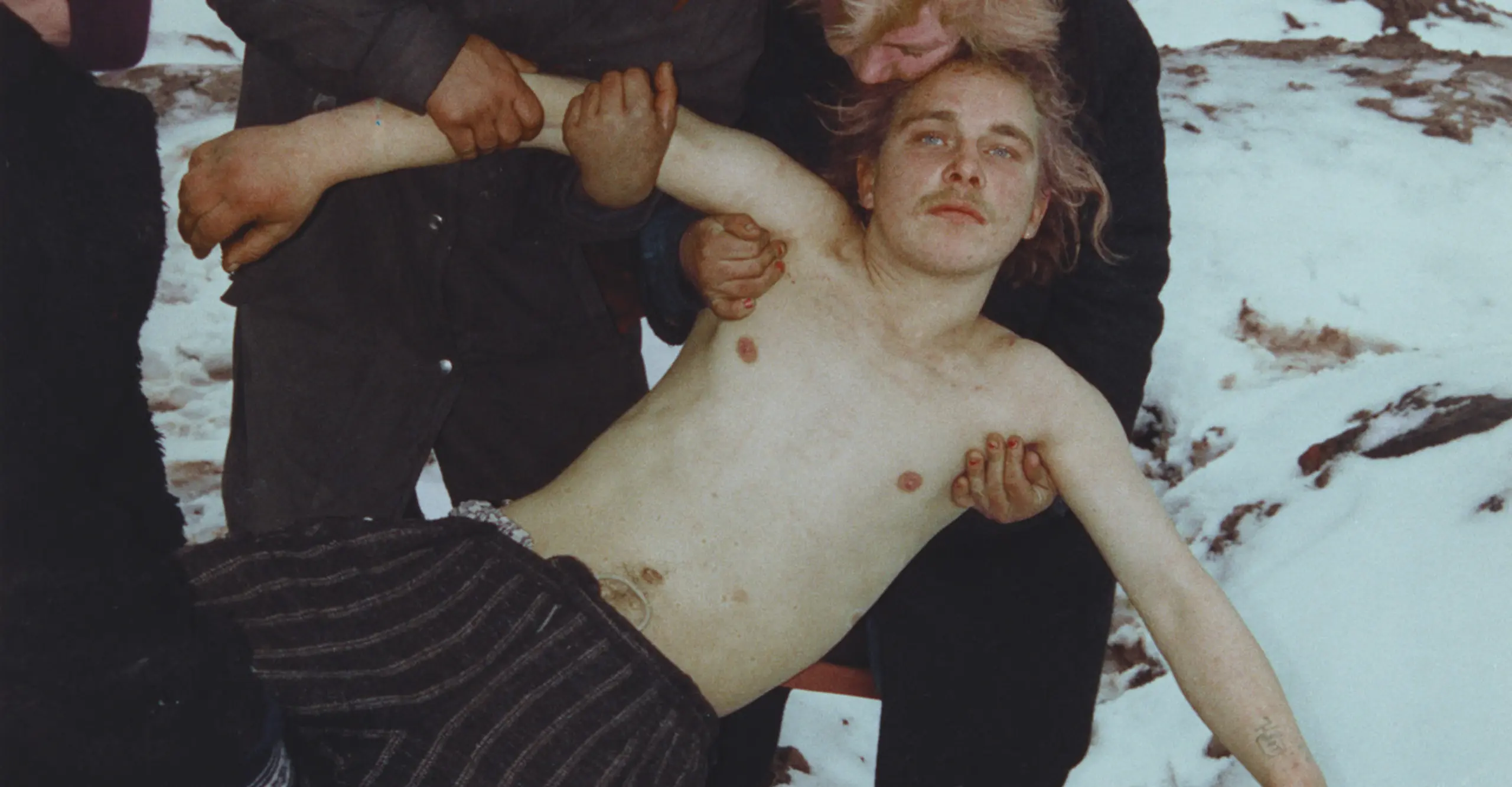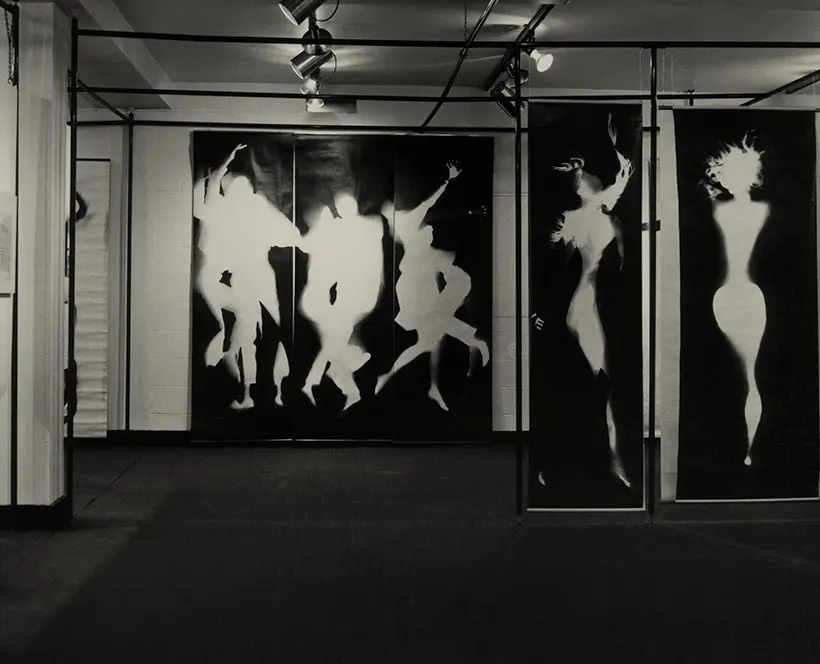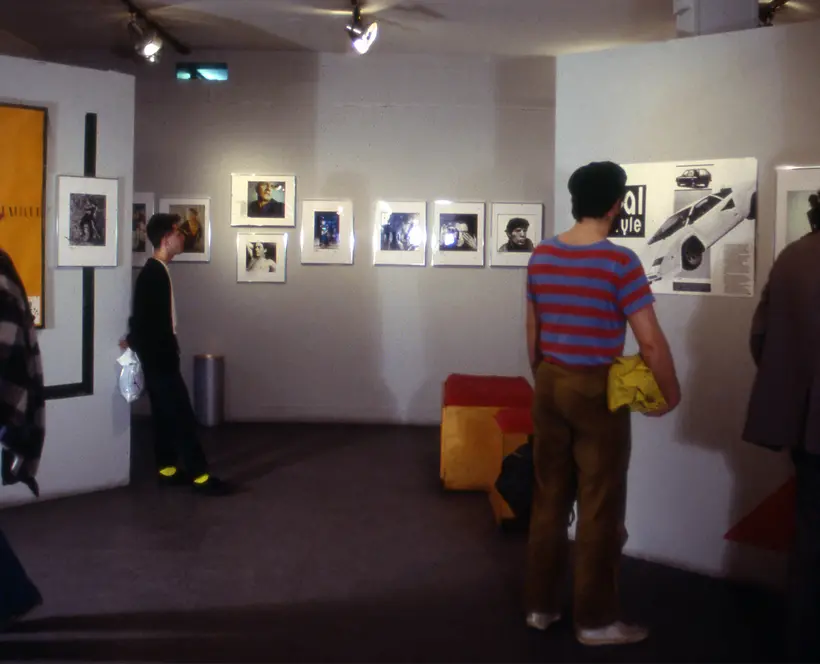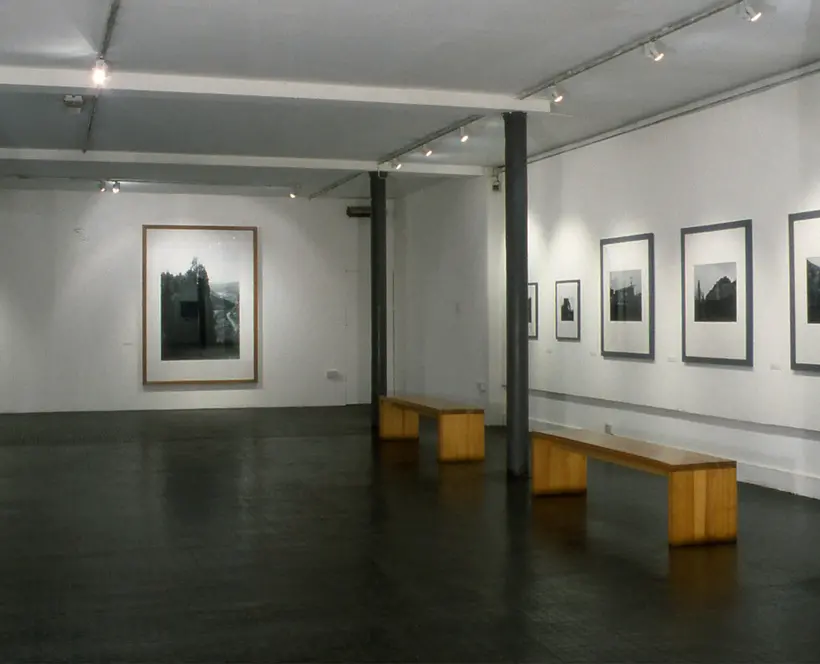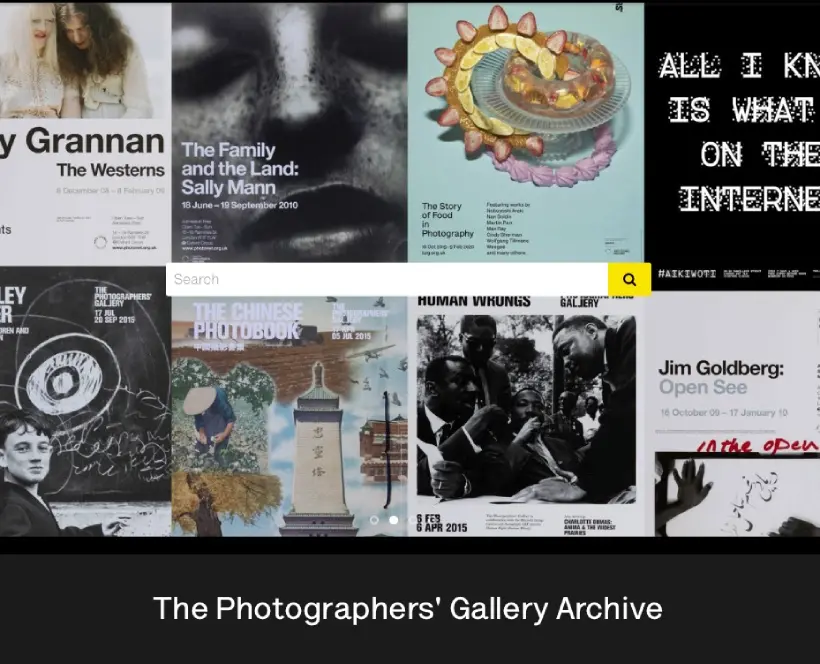7 April – 21 May 2000
In my work, I identify with the period and the process our country is going through.
That the photographs of Boris Mikhailov have, for over thirty years, explored the position of the individual within the historical workings of public ideology is unsurprising, given how he started. A technical engineer by training, he was introduced to the camera in his late Twenties when he was officially requested to make an educational film about the factory in which he worked. It was not long after this that the KGB found some nude photographs which Mikhailov had taken of his wife and, as such images were deemed pornographic and therefore banned, he was immediately removed from his job. He decided that he would devote himself to photography from then on and, in the intervening decades, he has become, along with his old friend Ilya Kabakov, one of the most important artists to have emerged from the former Soviet Union.
Since then, Mikhailov has always worked in series and a broad range of these are included in this exhibition, his first solo show in a public gallery in Britain. All of them explore the position of the individual within the sphere of a public ideology, whether communism or capitalism. This is evident in the Red Series (1968-75), where Mikhailov documents the slogans and symbols of the Soviet era as heroic backdrops to the mundanities of everyday life, and Private Series, which is more intimate, less public, but where the official iconography of the Soviet state can still be seen behind people as they dance or socialise within their own apartments. Crimean Snobbery, from the mid-1970s, is a more poetic meditation upon friendship and love, appearing almost like faded stills from a forgotten film of the nouvelle vague. In all these works, however, we find the same concerns: 'the past, relation to tradition, recent and long gone, the relation between what is social and what is personal, the sphere of the public and the sphere of the intimate', as critic Lech Lechowicz has noted.
These themes reappear in Case History (1999) arguably his most important work. Both unflinching and despairing, this project explores the break-up of the Soviet Union by focussing on its human consequences, the bomzhes, or homeless. The familiar figures of much 'humanitarian' social documentary, the homeless in Mikhailov's pictures become players in some existential tragedy, given money by the artist to be photographed, sometimes clothed, sometimes naked, or somewhere in between. The manipulation of people with money has become a new form of social relation in the former USSR - in this sense it has 'caught up' with the 'West' - and it is a relation which has infiltrated this project to its ice-cold heart. Perhaps at no other time has a photographer approached human subjects with such an unflinching, morally complex, and powerful gaze.
Boris Mikhailov was born in 1938 in Kharkov, Ukraine, where he continues to live and work. In recent years, he has exhibited at the Museum of Modern Art, New York, the Stedelijk Museum, Amsterdam, the Kunsthalle, Zurich, Portikus, Frankfurt, and the Sprengel Museum, Hannover.
Read a feature on the Boris Mikhailov exhibition.
Boris Mikhailov - Case History. Published 1999. ISBN 978-3908247098
Information for this exhibition is currently incomplete or yet to be catalogued.
We’re working to document our past programme using material in our Archive, and so information on this exhibition may become available in the future. Can you help us? If you visited or were involved with this exhibition and have information you can share with us, we’d love to hear from you. You can get in touch using the details below. Likewise if you spot anything incorrect, have any further information that would improve this listing, or want to share a memory of TPG please contact us at tpg.archive@tpg.org.uk
For further information on this and past exhibitions, visit our Archive and Study Room.
